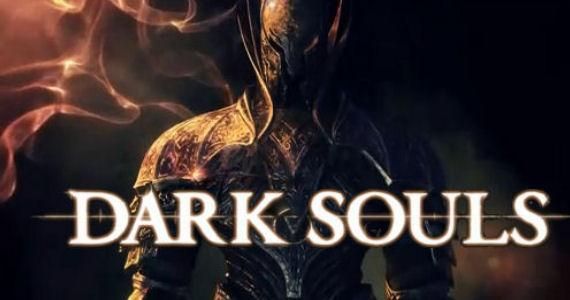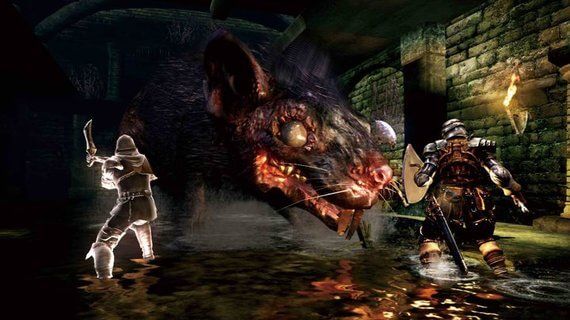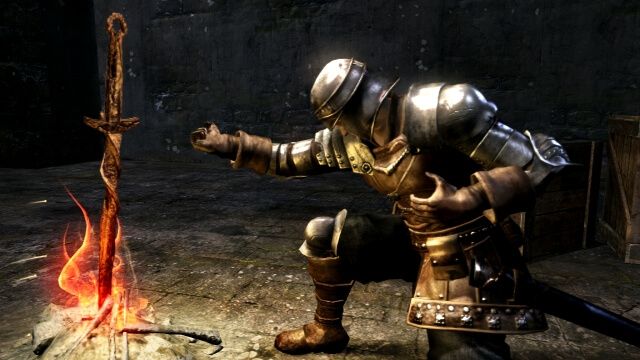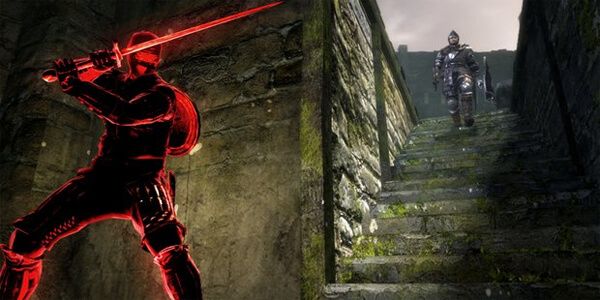Game Rant's Jason Weissman reviews Dark Souls
Back in 2009, the critically acclaimed Demon's Souls was a surprise hit for the PlayStation 3. From Software's action RPG featured an incredibly high learning curve compared to other modern era games and a rather unique multiplayer format - where players could help or hinder others who were playing the game.
With the success of the title on just one platform, From Software decided to expand its reach by bringing Dark Souls, the spiritual successor to Demon's Souls, to both the PlayStation 3 and Xbox 360 this time around. Does it live up to the franchise pedigree? Read on to find out.
Conceptually, Dark Souls is similar to its predecessor except with some gameplay tweaks and a sandbox layout. This time around, players begin their story as a member of the Undead in an asylum - from which they will need to escape. During this "tutorial," gamers will see orange markings on the ground that, when read, provide very basic instructions on how to proceed. Within 15 minutes, you'll face a boss demon and numerous undead enemies. Once the escape is completed, the player is then transported to an open landscape where they will be tasked with ringing two bells in two different locations in order to proceed. Along the way, players will most likely die over and over and over again during this beginning sequence - which is the "easy" part of Dark Souls.
Yes, Dark Souls puts the pleasure-pain principle into practice like no other game before it. Unless a gamer is particularly adept at quickly learning enemy patterns and weaknesses, the experience can feel like an experiment to see how long it takes gamers to lose their cool. Demon's Souls offered tough obstacles as well, but From Software ramped up the difficulty tenfold in Dark Souls. Like its predecessor, there are many challenging bosses and mini-bosses scattered throughout the game world that can kill a player in the blink of an eye. This is especially common if venturing into a part of the world while too low a level or ill-equipped.
What makes these deaths even more punishing is when the main character is killed, he or she will lose all of the "souls" that they acquired from defeated enemies. This can be incredibly demoralizing as souls are the currency of the realm and allow the player to level up at a bonfire or buy useful items such as weapons and armor from a merchant. Sure, players have one chance to reach the spot of their death and reclaim those lost souls, but if killed along the way, those souls will be lost forever and it's back to square one. On this basis alone, it's likely that many a controller will be sacrificed to the Dark Souls gods.
What makes Dark Souls so much harder than its contemporaries? For starters, unlike most other hack 'n slash RPG titles, this is not a game where players can mindlessly spam attacks. Approach the game like you're playing a Fable title, and you'll be killed by the lowliest of creatures in an embarrassing fashion. Attacks are limited to the player's stamina, which drains quickly if they attack too many times without resting. Enemies will often block or parry attacks if they are prepared, leaving players exposed to a vicious counter-attack. Additionally, once gamers begin an attack movement, that action cannot be interrupted, so they'll have to be judicious in their approach toward enemies. Mastering the use of a shield to block incoming attacks is critical to success (as well as finding the Drake sword early in the game).
Further complicating matters is that the game gives very little initial guidance in the world itself. Trial and error is the best way to learn, but that can often come at a severe price. Because when, not if, the main character dies, he will return to the last bonfire where he rested, which could be far away from the location of death. Plus, all of those non-boss enemies killed a few moments ago? They've repopulated the map and need to be killed all over again. Have fun trying to reclaim those lost souls, especially if the death occurred during a boss battle.
So why would anyone want to play Dark Souls? The idea of spending time playing a maddening RPG may sound like a turnoff, but here's the crazy thing. After dying again and again, I found myself liking the game - in a masochistic sort of way. Unlike other action RPGs, death is an intended game mechanic from which the player is expected to learn and it rarely feels cheap. When my character was killed, I really only had myself to blame -- except for the one time my 2-year old thought my almost near victory over the Gaping Dragon was a good time to change the A/V input on my receiver (you cannot pause the game). The level design of each area offers unique challenges as death awaits around every corner and the enemy variety is quite amazing in diversity and tactics. The combat, for all of its complexity, is extremely satisfying once accustomed to it. Because of the game's difficulty, the feeling of accomplishment when finally beating a certain boss is more rewarding than completing similar feats in most other games of this generation. Other than Demon's Souls, no game today provides a similar experience to Dark Souls. Not to mention, the game is one of the best looking RPG's ever released for the consoles.
Dark Souls is primarily a single-player experience but it offers multiplayer in a nontraditional, but compelling, way. When the player has collected a piece of humanity, he or she may become fully human while at a bonfire. This provides several stat bonuses but also allows for a more useful perk: the ability to summon NPC's or other willing online players into his or her game. As some of the boss fights can be insanely difficult for the average gamer, this is an almost essential feature of Dark Souls. While summoning NPC's works well, however, the same could not always be said for summoning real people. Often, a "Summoning Failed" banner would appear on screen, presumably because the person was no longer available. But even when real-life players were successfully brought into the host game, a severe slowdown in frame rate occurred, turning the battle into a laggy mess.
One of the other risks of taking human form is that other players on the server can invade your game world. Win the fight and receive their souls, but lose and the interloper will steal the player's humanity - though there is a level restriction for such tactics, so the fights are mostly on a even playing field. Since each gamer is inhabiting the same space but in a different dimension, players can also leave messages on the ground for others, advising them of what's around the corner. Many such messages are helpful, but a few will lead the unsuspecting players right into a trap, so be wary. Touching bloodstains that show, in ghost form, how other players died are often more instructive on what to avoid.
Dark Souls is a brilliant RPG that successfully builds upon and expands the feature set of Demon's Souls. If you were a fan of the previous game, buy Dark Souls without hesitation. However, for those new to the series, the decision is not as simple. If you are easily susceptible to high-blood pressure, frustration, throwing objects at loved ones while stressed, and/or heart attacks, this is not the game for you. Do yourself a favor and wait for Skyrim to get your RPG fix.
But if you consider yourself the hardest of the hardcore, think modern gaming is too easy, and are looking for a challenging RPG experience, you won't want to miss out on Dark Souls. Just don't say we didn't warn you.
Dark Souls is now available for the PlayStation 3 and Xbox 360. The above review was based upon the Xbox 360 version of the game.




